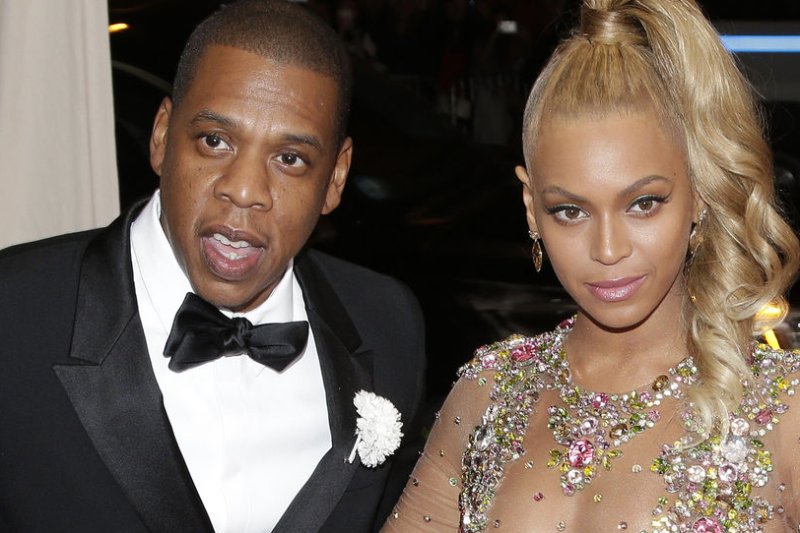1 of 3 | Jay-Z and wife Beyonce arrive at the Costume Institute Benefit in May 2015. A Los Angeles judge has decided in favor of rapper Jay-Z in a copyright lawsuit surrounding his 1999 single "Big Pimpin'." File Photo by John Angelillo/UPI |
License Photo
LOS ANGELES, Oct. 21 (UPI) -- Rapper Jay-Z has come out on top in a copyright lawsuit surrounding his and Timbaland's 1999 hit "Big Pimpin'."
Judge Christina Snyder announced her verdict Wednesday after the rapper and producer were put on trial last week for allegedly using an illegally acquired sample from a 1957 Egyptian song. According to Snyder, the plaintiff Osama Fahmy -- the nephew of Egyptian musician Baligh Hamdi -- hadn't a strong enough standing to continue the lawsuit.
Accused of using a melody from the late Egyptian songwriter's "Khosara Khosara," both the rapper -- also known as Shawn Carter -- and Timbaland, say they acquired the proper permission before moving forward with the tune.
According to reports, Fahmy argued the artists should have sought personal approval from his family before they used the song, citing "moral rights." The hip-hop moguls, however, argued the Egyptian concept of "moral rights" could not be argued since they legally acquired rights to the melody through the song's record label, Sout El Phan.
"Fahmy lacked standing to pursue his claim," Snyder reportedly said in court. "In light of that decision, it will not be necessary to submit to the jury whether 'Big Pimpin' ' infringed 'Khosara Khosara.' "
"I had to hear the testimony of Egyptian law experts in order to reach that decision," she said.
Fahmy's attorney Keith Wesley told reporters he and his client fully intend to appeal the verdict, claiming "the court committed legal error in failing to restrict the license under Egyptian law."














